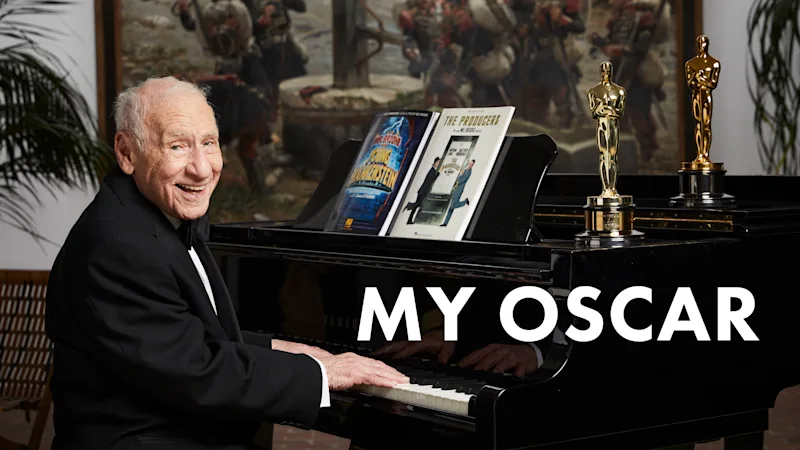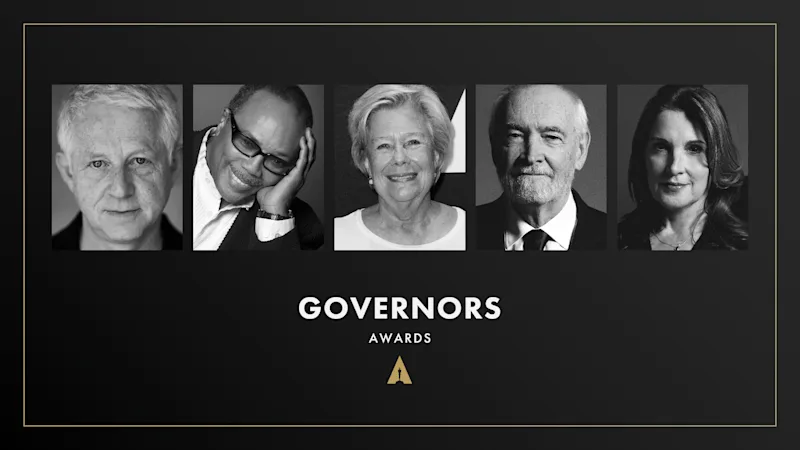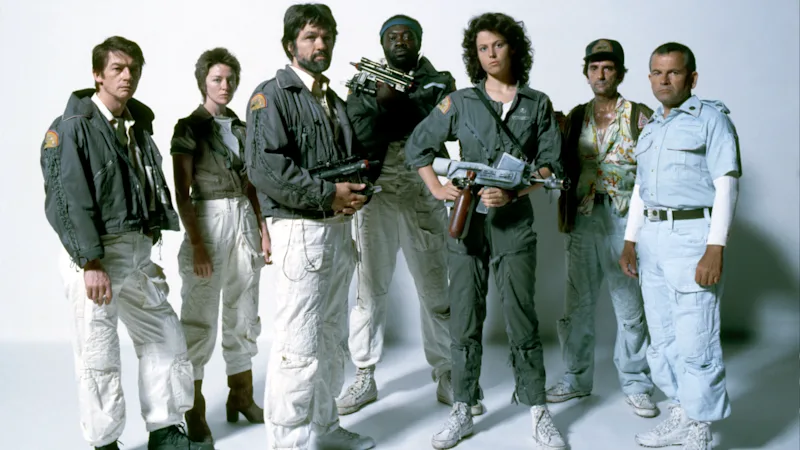"When you're the filmmaker, it all feels more intense!" exclaims Maggie Gyllenhaal. More than a decade ago, she earned her first Oscar nomination for her performance in the 2009 drama Crazy Heart. Now, she is once again in contention with her directorial debut, The Lost Daughter, and is finding the experience "definitely more intense. And more vulnerable. And more exciting. It's all of those things."
Gyllenhaal's nomination — for Best Adapted Screenplay — makes her only the third woman to be recognized for acting and writing, following Ruth Gordon and Emma Thompson. "I mean, I don't think you could ask really for a better club to be in," she says. Her mother, Naomi Foner, who was nominated for Best Original Screenplay herself for the 1988 Sidney Lumet romantic drama Running on Empty, informed Gyllenhaal of that fact.
The Lost Daughter is her adaptation of author Elena Ferrante's 2006 novel of the same name. The story follows Leda, a middle-aged divorced professor on holiday in Greece, whose chance encounter with a young mother, Nina, stirs up memories of the choices that she made as a young parent. Gyllenhaal was attracted to its exploration of motherhood in all its ugly truths and taboos and reached out to Ferrante's publisher — as the pseudonymous novelist keeps her identity secret — for the screen rights. Ferrante agreed, so long as Gyllenhaal also directed.
"Because I was a first-time director, I wanted to really make sure the script was totally solid and really something I could rely on," Gyllenhaal says of her writing process. "I was not comfortable going, "Oh, we'll figure that out on the day." There were tons of things that shifted and changed on the day -- and that's definitely my style. And it was like playing jazz once we were out there, but I wanted to make sure the script was solid ground."

That was as much rigidity as Gyllenhaal allowed into her filmmaking process. On set in Greece with her cast — which includes Olivia Colman as Leda (who is nominated for Best Actress), Jessie Buckley as a younger Leda in flashback scenes (who is nominated for Best Supporting Actress), and Dakota Johnson as Nina, plus Ed Harris and Paul Mescal — she found her purpose was to be in collaboration with her actors and crew, that she was responsible for making sure that they felt taken care of by their director and safe to allow the story take them where it needed to go.
"When people are assholes, like when someone in power is awful to you, it just freezes you. It makes you tight. And really, the idea is to get loose," she reasons. "Everyone, and particularly actors — and I know this, of course — are so vulnerable. Everybody wants to be seen and loved. And it's a huge part of the job of the director to love your actors and to make the space in your own mind to really truly see them."
I'm just trying to warm everybody up and make them reach for something nearly impossible to get to.
The characters within The Lost Daughter are complicated, to say the least, and Gyllenhaal endeavored to make a movie that would be simultaneously empathetic and uncompromising, that would lay bare the utter desperation of motherhood on the big screen right alongside the rapturous bliss. She'd never judged the characters on the page, nor had she when she adapted them for her screenplay; so, neither would she when the actors she had cast to bring them to life made a choice on set. In fact, seeing what would happen when they opened up and took risks was what she eagerly anticipated.
"All my actors do funny imitations of me whispering sort of wild things in their ear. And I gave a lot of notes. I remember Dagmara Dominczyk saying, 'That's a lot! I'm not sure if I can put all of that in.' And I was like, 'Whatever sticks! And whatever doesn't, just f—k it. Who cares!'" At the end of the day, she says, "I'm just trying to warm everybody up and make them reach for something nearly impossible to get to."

Light up, warm up and get brave is a sentiment Gyllenhaal comes back to often and became something of a philosophy by which she led her production. She quickly realized that whatever vision she had of The Lost Daughter in her head was only as valuable as whatever "surprising, inspiring things my cinematographer, my actors, my production designers come up with." She uses the latter to make her point. "If Inbal Weinberg comes to me and says, 'I think we should paint this wall blue,' and I'm like, 'No, I imagined it white in my head,' what a shame! So, f—k it! Let's do blue! Not indiscriminately, but to be really, truly open to the brilliant ideas of the people around you."
"So many things in my film came from other people's minds, mixed with mine," she says. "I've worked with directors who aren't interested in that kind of collaboration, and it's so limiting." For the filmmaker, The Lost Daughter is as much theirs as it hers.
She recently bought a ticket for a screening at The Paris Theater in New York. Until then, she had only seen the film with an audience during festival screenings. During this particular viewing, she found herself struck by one scene in particular. The scene is between Colman's Leda and Mescal's Will, who works as a pool boy at the resort. On a whim, Leda invites him to dinner and, over the course of their meal, talks and talks, telling him about her mother, her daughters and all of their resentments. Gyllenhaal wrote the scene, as she puts it, "without any scaffolding," leaving it totally open for Colman to decide how Leda should get from one point to another.
"The thoughts of this really brilliant woman's mind is really where the expression is," Gyllenhaal says. "I guess I felt like somehow she and I were kind of braided together. It was really beautiful to watch that on-screen."
RELATED CONTENT:
Maggie Gyllenhaal: 5 Movies That Inspired Me to Direct
Jessie Buckley Stars in Alex Garland’s Latest Thriller 'Men' – Watch the Trailer!
Nicole Kidman, Ariana DeBose and More React to Their 2022 Oscar Nominations
50 Films to Watch During Women's History Month







